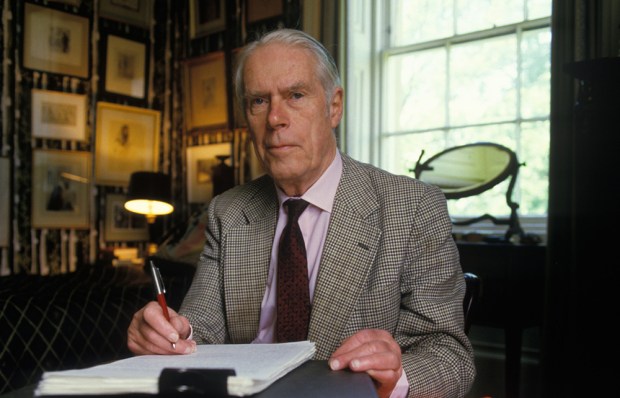In the NHS clinic where I work, adults who suspect they may have Asperger syndrome wait almost a year for a diagnosis. The clinic takes referrals from all over Cambridgeshire and Peterborough (a population of 860,000), but we have to see all of them in the hours of a single full-time doctor. And the clinic is not given funds to run a follow-up support service once someone has been diagnosed. These individuals struggle to socialise, are neurologically different, and are overlooked because their disability is invisible. Many have experienced bullying in childhood, underemployment in adulthood and exploitation because of their social naivety. Many are made to feel inferior despite their often considerable talents. No surprise that many develop depression. Our study in the Lancet Psychiatry showed that two thirds of the patients in our clinic had felt suicidal, and a third had attempted suicide. Parliament passed an Autism Act back in 2009 to legislate for more services but, despite much talk, no new funding means precious little has changed.
I open my email to find an unusual message: an invitation to give the keynote lecture to the UN in New York on Autism Awareness Day, 31 March. The topic is autonomy and self-determination. These sound to me like human rights issues. Perhaps it’s time to highlight how, for decades, these have been sorely overlooked in the case of autism.
A few weeks ago, I gave a talk in the Distinguished Lecture Series at the Berlin School of Mind and Brain, part of Humboldt University. With my colleague Dr Isabel Dziobek, a talented social neuroscientist, I took the opportunity to visit the ‘Memorial to the Murdered Jews of Europe’. It is an impressive, depressing piece of sculpture, with more than 2,000 concrete slabs arranged in a suffocating grid. We walk along the rows and columns. Each dark-grey slab seems like a huge grave. Two out of three European Jews died in the Holocaust. Walking the streets of Berlin today, I imagine the cries of Jews dragged out of their homes and herded off to the gas chambers. I am continuously conscious of the haunting feeling of being in the lucky one in three who survived, by historical accident.
I asked my Berlin taxi driver, a friendly Palestinian, to take me to Bebelplatz. Here, on 10 May 1933, the German Student Union burnt 20,000 books by Jewish authors, including the works of Albert Einstein and Karl Marx, and other books not in line with Nazi values. In the cobbled stones of the square is a small, elegant memorial, the size of a trapdoor: a simple pane of glass. Looking through it, one can see bookshelves that could hold 20,000 books — empty. Next to this, engraved on a small plaque, is a quotation from Heinrich Heine, dated 1821: ‘Das war ein Vorspiel nur, dort wo man Bücher verbrennt, verbrennt man am Ende auch Menschen’ (‘That was only a prelude; where they burn books, they will in the end also burn people’). How remarkable that he had understood — more than a century before the Holocaust — that each example of the erosion of democracy leads to even greater violations of human rights. It reminded me of a remark by the historian Ian Kershaw: ‘The road to Auschwitz was built by hate, but paved with indifference.’
In a cool restaurant crowded with young Berliners, I talked over supper with Isabel about her work providing free psychotherapy for Syrian refugees in Germany, many of whom have experienced trauma and need to talk. It is hugely inspiring that Berlin today is assertively multicultural, liberal and inclusive, and that Germany has taken over a million refugees; and how shameful that the UK has taken barely 4,000.
At Humboldt University I met a group of people with autism conducting research into autism. It was a privilege to talk to such a thoughtful group, who want to help other researchers understand them better, and to ensure research remains relevant. We discuss the urgent questions: how long does it take to get a diagnosis? What support is available?
Today I’m at a press conference at the London Book Fair to announce the shortlist for this year’s Wellcome Book Prize. As a judge I’m talking about The Gene by Siddhartha Mukherjee. This impressive book tells the history of genetics, interweaving the author’s family struggle with inherited schizophrenia. Along the way he covers the disturbing ideas about genetic purity, eugenics, compulsory sterilisation of the ‘feebleminded’ in the US in the 1920s, and the Nazi policies of ‘racial hygiene’. A reminder if we needed one about how science and society are never separate.
Got something to add? Join the discussion and comment below.
Get 10 issues for just $10
Subscribe to The Spectator Australia today for the next 10 magazine issues, plus full online access, for just $10.
You might disagree with half of it, but you’ll enjoy reading all of it. Try your first month for free, then just $2 a week for the remainder of your first year.














Comments
Don't miss out
Join the conversation with other Spectator Australia readers. Subscribe to leave a comment.
SUBSCRIBEAlready a subscriber? Log in